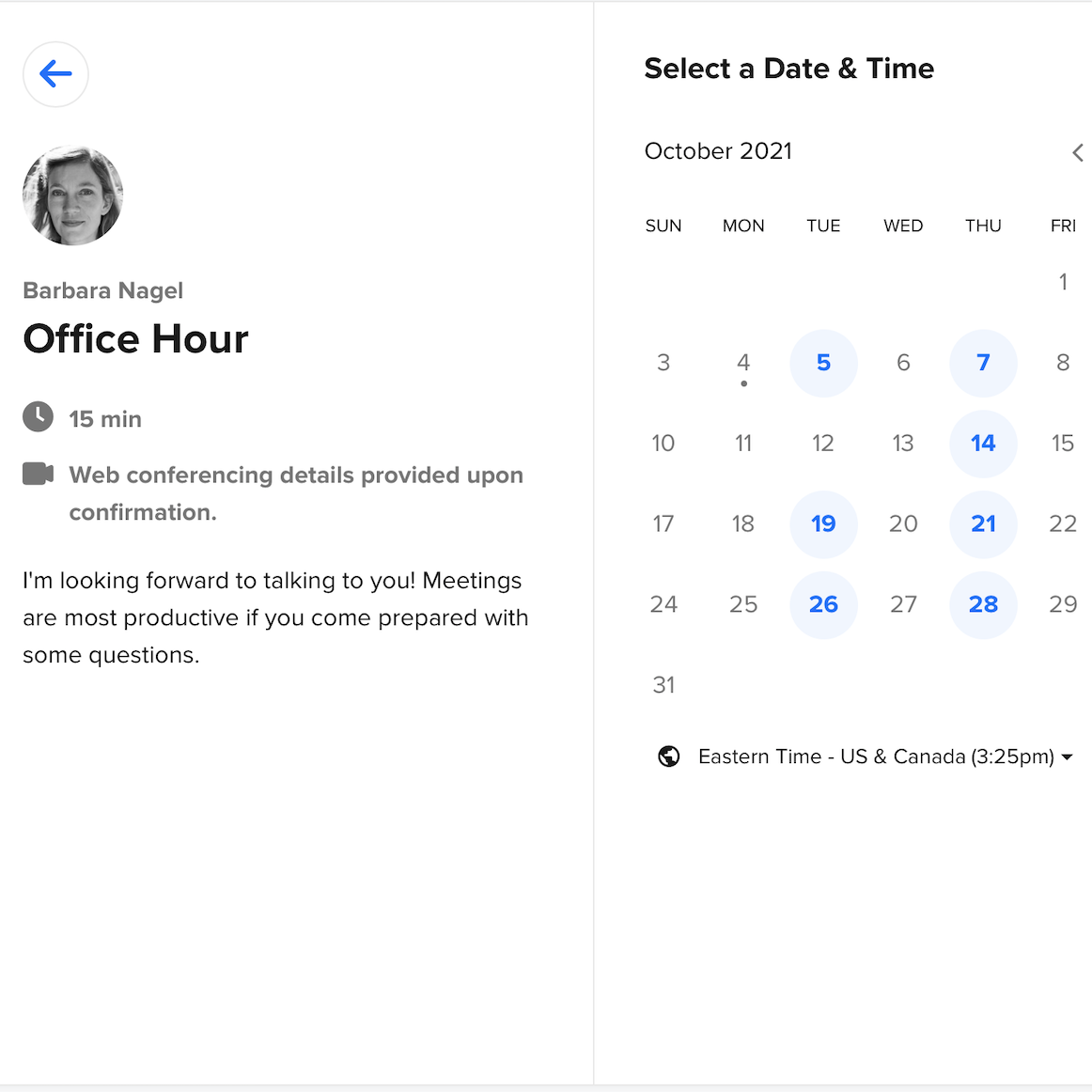With classes in full swing, I thought I would share my thoughts on what is a woefully underused resource at Princeton: office hours. Going to office hours has been an extremely valuable tool for me in completing problem sets, studying for tests and exams, and connecting with professors. So read ahead for some advice and observations I’ve made!

A great way to learn
Office hours can provide an opportunity for students to learn and think about material in a way that is very different from the class. Lectures are often highly structured and fast-paced, with little time for professors to answer questions, and even less time for students to even digest the material and think of those questions in the first place. In an AI’s office hours, however, things are more laidback and students have the opportunity to reflect on readings or problem sets and come in with topics they would like to discuss. This evidently can enrich and reinforce learning.
And of course, different classes will have different office hour structures. For instance, in my math class, MAT 103, office hours were a place where the professor would do practice problems (either from lecture or from problem sets). Interestingly, the professor would be much more engaging in these office hours, asking students for input about what he should do next in a given problem. This slowing down of the pace helped me understand the thought processes behind the math, much different than in class, where I would often just frantically copy down examples in class.
However, in my SPIA class, entitled China’s Foreign Relations, office hours are a time for one-one conversation with an AI or professor. Many of the readings that we are assigned discuss foreign policy decisions, and what I have found is that going into office hours helps me learn more about the historical and present-day contexts in which those decisions were made. For instance, just last week, I was able to have an interesting conversation about hostage diplomacy with the professor after asking him about his perspective on two Canadians who were held captive in China over sanction disputes.
All in all, pushing myself to go to office hours motivates me to engage closely with my lecture notes and readings and regularly review material outside of class, so that I can have a productive and thoughtful conversations with AIs.
A great way to connect to professors
Scheduling office hours directly with a professor is also a great way to form an intellectual and a personal bond with someone who is so knowledgeable in a field you may be interested in.
Having a one-on-one conversation with a professor will inevitably lead you down intellectual paths that you may not have thought of before. Professors, being so well-versed in the subjects they teach, draw connections between the material you cover in class to historical events to things that are happening in the news. This can get you to think about class material in a completely different way. Conversations like these can also be a great way to start brainstorming or refining essay ideas.
When going in to meet with a professor, in addition to having questions ready, be ready to listen and ask follow-up questions! As an undergraduate, it is easy to get intimidated by someone with so much more experience and education but think of office hours as an opportunity to get a new perspective on what interests you. You will likely leave these meetings with a dozen issues that the professor brought up that you would like to read more about. For instance, this past week, my MOL 214 preceptor gave me a few good articles to read in response to some questions I had on the class material.
Moreover, discussions with a professor outside of class are a great way to demonstrate that you do care about a given subject. Building these connections early may prove to be advantageous when at some point in your Princeton career, you are looking for research or work opportunities and need a letter of recommendation (you can get more advice on how to ask professors for letters of recommendation here).
How can I schedule office hours?
Luckily enough, most professors make it easy for students to talk to them. I would start by reviewing my class’s syllabus, to see what information the professor has provided—in my experience, most professors have a set block of time per week during which they are open to drop-ins as well as Calendly links to make appointments (some professors are also using Wase, which will be soon discontinued).

If you are interested in speaking to a professor whose class you are not taking, look for their Calendly link on their home page (most likely somewhere on their department’s web page), and if you can’t find it, don’t be afraid to send them an email! And this year, many professors are still holding virtual office hours, and you can get advice on how to make the most out of them here!
– Sandeep Mangat, Natural Sciences Correspondent

